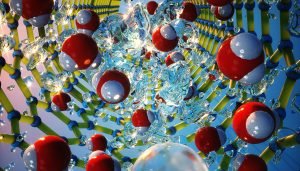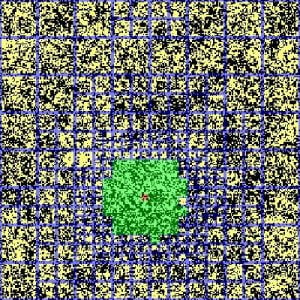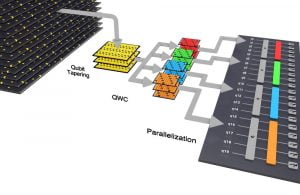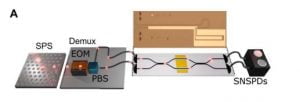
Inspired by how our body’s motor proteins facilitate tasks like muscle contraction and cellular migration, scientists have been looking for efficient ways to convert chemical energy (the energy stored in substances) into useful mechanical work. By understanding and harnessing the mechanisms that nature uses, we can develop new technologies and advancements with implications in areas […]

To better predict the specifics of these storms, researchers at The Pennsylvania State University (Penn State) recently used Expanse at the San Diego Supercomputer Center (SDSC) at UC San Diego and Stampede2 supercomputer at the Texas Advanced Computing Center to closely examine the role of convection in global energy distribution. The post Supercomputer Simulations Generate […]

Lawrence Livermore National Laboratory (LLNL) scientists recently combined large-scale molecular dynamics simulations with machine learning interatomic potentials derived from first-principles calculations to examine the hydrogen bonding of water confined in carbon nanotubes (CNTs). They found that the narrower the diameter of the CNT, the more the water structure is affected in a highly complex and […]

Sustainability in high-performance computing (HPC) has been on everyone’s mind lately. In the most recent survey from Hyperion Research, sustainability and energy efficiency rose to the top of priority lists for many HPC datacenter procurement plans, second only to performance, even more imperative than price. The post How Do We Make Supercomputing Operations More Sustainable […]

Researchers at Leipzig University have developed a highly efficient method to investigate systems with long-range interactions that were previously puzzling to experts. These systems can be gases or even solid materials such as magnets whose atoms interact not only with their neighbours but also far beyond. Professor Wolfhard Janke and his team of researchers use […]

Using the full capabilities of the Quantinuum H1-1 quantum computer, researchers from the Department of Energy’s Oak Ridge National Laboratory not only demonstrated best practices for scientific computing on current quantum systems but also produced an intriguing scientific result. The post Researchers Use Commercial Quantum Computer to Identify Singlet Fission Molecules for Efficient Solar Cells […]

For decades, scientists have been trying to solve the mystery of what makes quantum computers more powerful than classical computers. The origins of this quest can be traced all the way to Albert Einstein who famously called quantum mechanical entanglement “spooky action at a distance”. Now in a groundbreaking paper published in the Physical Review Letters, a […]

Researchers are leveraging photonics to develop and scale the hardware necessary to tackle the stringent requirements of quantum information technologies. By exploiting the properties of photonics, researchers point to the benefits of scaling quantum hardware. If or when successful, researchers say quantum hardware at scale will enable long-range networks, interconnections between multiple quantum devices, and […]

As HPC and AI continue to rapidly advance, the alluring vision of nuclear fusion and its endless zero-carbon, low-radioactivity energy is the sparkle in many a futurist’s eye. At an ISC focus session, attendees were given an overview of digital twin efforts toward fusion in the U.K. by Rob Akers, Director of Computing Programs, U.K. […]

For decades, scientists have dreamed about the incredible potential of a supercomputer powered by quantum technology. New partnerships involving the University of Chicago will bring together global leaders in education and technology to enable the next generation of high-performance quantum computing, fueling an industry with the potential to transform computing, information networks and more. The […]










